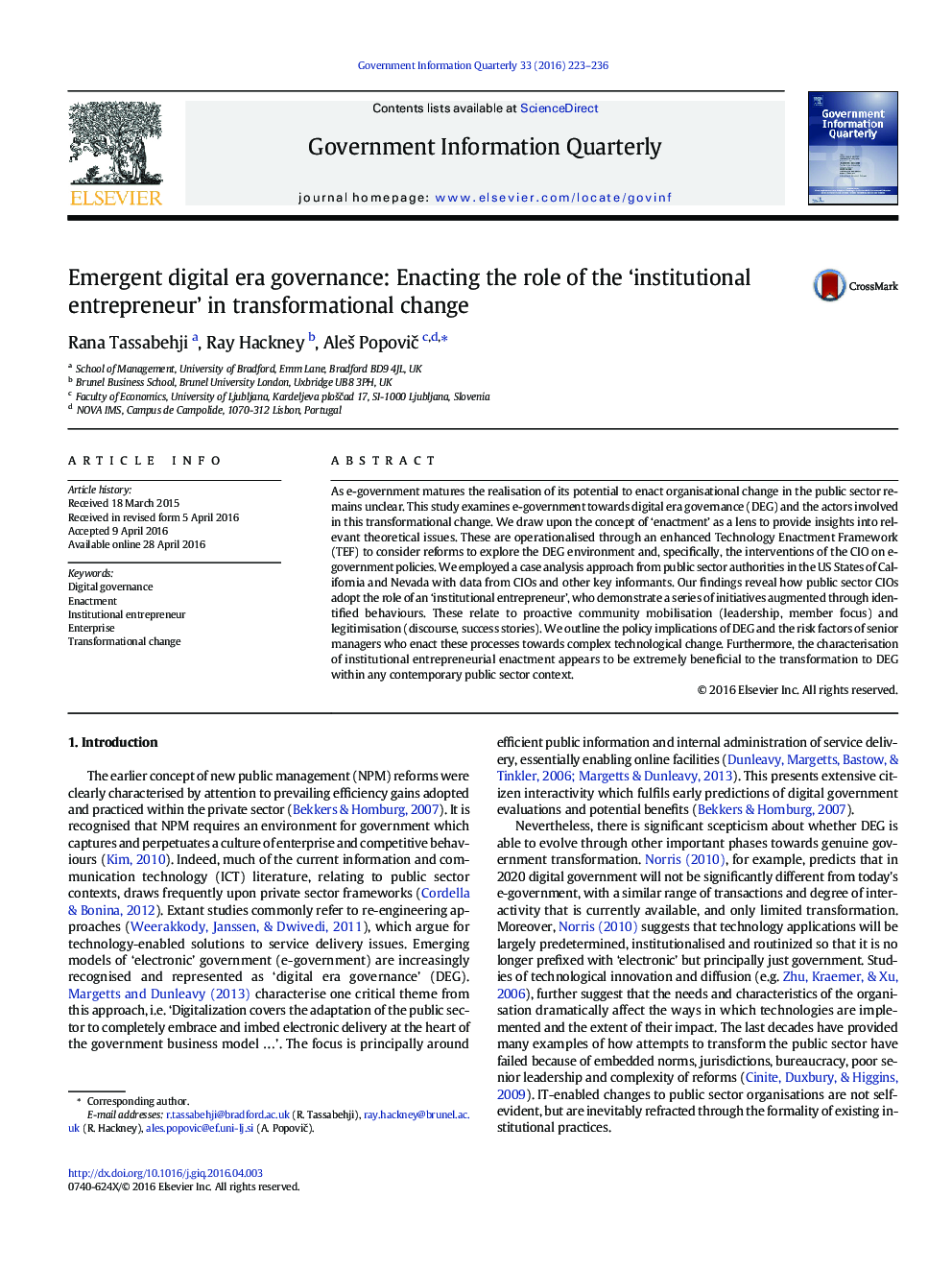| Article ID | Journal | Published Year | Pages | File Type |
|---|---|---|---|---|
| 1024249 | Government Information Quarterly | 2016 | 14 Pages |
•The potential of e-government to enact organizational change in the public sector remains unclear.•The role of ‘institutional entrepreneurs’ for Digital Era Governance (DEG) is emphasized.•Proactive community mobilisation and legitimisation are important behaviours of ‘institutional entrepreneurs’.•The characterization of institutional entrepreneurial enactment is beneficial to the transformation to DEG.
As e-government matures the realisation of its potential to enact organisational change in the public sector remains unclear. This study examines e-government towards digital era governance (DEG) and the actors involved in this transformational change. We draw upon the concept of ‘enactment’ as a lens to provide insights into relevant theoretical issues. These are operationalised through an enhanced Technology Enactment Framework (TEF) to consider reforms to explore the DEG environment and, specifically, the interventions of the CIO on e-government policies. We employed a case analysis approach from public sector authorities in the US States of California and Nevada with data from CIOs and other key informants. Our findings reveal how public sector CIOs adopt the role of an ‘institutional entrepreneur’, who demonstrate a series of initiatives augmented through identified behaviours. These relate to proactive community mobilisation (leadership, member focus) and legitimisation (discourse, success stories). We outline the policy implications of DEG and the risk factors of senior managers who enact these processes towards complex technological change. Furthermore, the characterisation of institutional entrepreneurial enactment appears to be extremely beneficial to the transformation to DEG within any contemporary public sector context.
